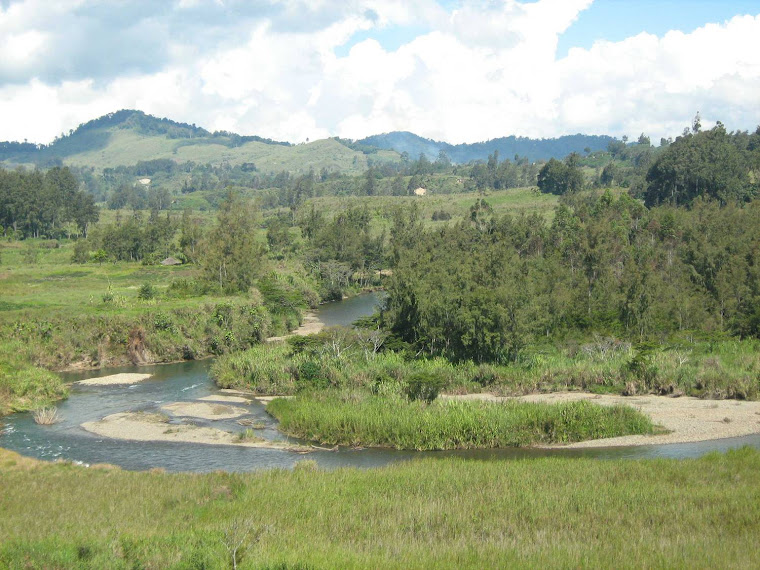23rd March 2008
China is not responsible for Darfur crises
By Mathew Yakai in Changchun, China
STEVEN Spielberg, the Hollywood film director pulled out of his involvement with this year’s Beijing Olympics in protest at China’s alleged role in atrocities in Darfur.
In the most embarrassing public relations set-back yet to the Chinese government’s hosting of the Games, Spielberg, who was due to be an advisor for the opening and closing ceremonies in August, said he could no longer live with his conscience over his position.
His resignation stems from allegations that China has been a notable ally of the Sudanese government, buying its oil and selling its arms, and has threatened to veto United Nations Security Council resolutions imposing sanctions on the African country for massacres in Darfur, in the south of the country.
Darfur crises is a very sensitive issue to discuss. But I am compelled to share my observation because China’s presence in the Pacific is enormous and it is likely that many commentators will use Darfur crises to warn any Pacific Island countries to be cautious when dealing with China.
Researchers and the so called scholars have in the past done that, particularly on China’s “cold power” in the region.
China is now both the “regional power” with “global presence” and Pacific islanders will live with their Chinese friends. So, it is important we are well aware on the issue and China’s role in solving it.
When I refer to China as a “regional power” I mean that China has some leverage, in both economic and politics in the region, apart from other regional powers like India, Japan, Russia to name the few. But China does not interfere in the politics of other countries.
In “global presence” some scholars argue that China is a “global power” but I disagree. If there is any global power then it’s only U.S.A. Countries only feel China’s “global presence”.
Even though China is a veto power, and its presence being felt globally, China still remains a third world country.
But China, like any countries has done well in both regional and global politics when it comes to diplomacy. China’s interest in Darfur and any African countries is just the same as any regions of the world, including the Pacific.
China has healthy bilateral relationship with Papua New Guinea, Fiji, Australia, New Zealand and other regional governments.
China also has investments in the Pacific region, like in Africa, South America and Asia. In PNG, Ramu Nickel project is the single largest investment from China worth millions of Kina that will benefit both the local and national economy.
Beijing also provides aid to the regional governments without any strings attached and has been welcomed by leaders.
Leaders from Africa, South America, Caribbean and Asia have also welcomed Beijing’s “soft” loan because it is different to “Western” loans that come with hectic conditions, sometimes takes months to disapprove.
But when Spielberg resigned, he alleged that China’s aid, investment and sales of weapons to Darfur has increased the blood shed.
Lets get it correct. China’s aid to Sudan is genuine, like any aid to developing countries. Investments in Darfur help build local economy, technological and know-how transfer, all on “win-win” situation. Sales of weapon, if any are done by rules. It is similar to what America does to Taiwan.
It should be looked at this angle. It is the Sudanese government that bears the blame for its ongoing crises. But we can not leave the innocent people suffer. So the international community and other responsible governments should be doing more, instead of asking China alone to play more roles.
The Brookings Institution, a nonprofit public policy organization based in Washington which conduct high-quality, independent research recommends to the Chinese government that Beijing should involve more in solving the Darfur crises.
Brookings recommends that as a member of U.N. Security Council, China should heavily involve in solving the problem through its Foreign Ministry and importantly reduce its oil purchasing from Sudan, and be part of the Security Council to decide upon sanctions.
“Were China to use even a small part of its leverage to call Sudan to account, it would go a long way toward saving lives in Sudan,” according to Brookings.
China is Sudan’s largest trading partner and the main foreign investor in Sudan’s oil industry.
China National Petroleum Corp. has a 40 percent share in the international consortium extracting oil in Sudan, and it is building refineries and pipelines, enabling Sudan to benefit from oil export revenue since 1999.
If there is any economic development and enhancement of people’s lives then it is the investment by Chinese companies and that is what China is willing to help. But the pressure by international communities asking China to pressure Darfur is not inline with China’s diplomatic approach because Beijing is loyal to its “non-interference” policy.
Records have shown that more than 300,000 people have died in the Darfur region of Sudan from starvation, disease and violence during the past two years.
How many more deaths will be tolerated before the international community will act?
Despite criticisms, China has moved in to help minimise the crises. But it can not solve it completely because it’s the leadership in Sudan that can do that. And the international community must also help.
Spielberg and Brookings blaming China remains as allegation because records have shown that the crisis was caused by the western powers before China went in.
Darfur situation is importance to the Pacific Island in many aspects because China is one of the major aid donor and investor in most of the regional economies. Beijing’s investments have been welcomed by the regional governments.
Beijing invests in mining, logging, fisheries and others. It also gives aid and loan. Human resources development is another important area that China is investing.
Western scholars have speculated and connected the 2006 crises in Solomon Islands to China and Taiwan rivalry. They alleged that China and Taiwan interfered in the island’s government and that put Honiara’s China Town in flame.
These scholars speculate that China’s presence in the region will cause instability, like what is happening in Sudan and warned that Australia and U.S. should interfere to save the Pacific Islands.
But the largest Island state, PNG and its Melanesian neigbbours have told Canberra that “look north” policy is an opportunity available. Frank Bainimarama blantly told Canberra and Wellington when they imposed sanction on his military regime that China is a “friend”.
This depicts that regional governments are confident and able to work along with China as a developmental partner, rather then resisting it.
Sir Michale and Bainimara have rightly seen that China has a lot to offer and their policy towards Beijing is improving. And if their stand and policy towards China is conducted honestly, by following international norms and values with the local laws then ones sovereignty will be recognised and upheld.
Scholars assumption that what happened in Darfur will happen in any other countries as long as China is involed is mere speculation and unfounded because China’s investment in Asian countries have resulted in huge economic boom.
Darfur issues are not China’s problem, instead, it is Darfur’s own problem and itself knows the solution. China is only assisting to stop this humanatarian crisis.
Spielberg’s resignation was unfortunate for his professional career. It has nothing to do with the upcoming Beijing Olympic in August. He should not put “politics and sports” together.
The 1.3 billion people of China and the athletics throughout the world are looking forward to the Olympics.
U.S. President George Bush condemned the resignation and assured Beijing that he will personally attend the Game. British Prime Minister Brown termed the resignation “unfortunate” and said politics and sports should be separated. Australia’s Kevin Rudd also condemned the act.
The world leaders have recognized the role China has played and will play not only in the Darfur issue but any issues that will affect humanity. They have recognized that Olympic is the venue to bring people from the North and South together to solve problems such as Darfur and others, through the Olympic Spirit.
Spielberg’s resignation will not affect the opening and closing Olympic ceremony, but instead has given more courage to Beijing to prepare well.
When it comes to Darfur issue, it’s not the problem that concerns China only. It is the problem that every government should play its part in solving, either through the United Nations or any other forums like the African Union.
Blaming China for Darfur crises is a “Cold War” mentality.
China has a lot to offer and the Western countries should not play their Cold-War mentality, attempting to contain China in its gesture to offer more to developing countries.
Pacific Island countries also have a role to play in solving the Darfur issue through the international forums. Imposing sanctions on Darfur is not the way forward, but dialogue leads to mutual understanding and lasting resolutions. That’s Beijing’s approach.
Scholar’s speculation that China’s involvement in the Pacific may cause any problem is an academic hypothesis that has no place in the “coconut and bamboo diplomacy”.
The “bamboo diplomacy” in Asia, with China’s genuine role has proven to be working very well, with the current evidence of robust economic growth.
Pacific island countries should independently assess the role and growth of China, instead of depending on foreign critiques that have a biased intention.
If Darfur crises is used as a spring board to speculate any possible crises then we must understand that the African country has its own history and ideology.
One thing for sure is that China is willing to help genuinely in any areas and the Pacific Island governments should work with Beijing.
If there is any thing that needs to be learnt from Darfur crises then it is the human atrocities.
That’s definitely not China’s doing as Spielberg thinks.
Note: “Asia-Pacific Perspective: China +” looks at Chinese society, culture, economy, governance and China’s role within the Asia Pacific region and the world over. It mainly focuses on how PNG can learn from China’s experience.
American movie include Fijians as cast and crew
7 years ago









No comments:
Post a Comment